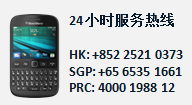Thailand: Loading of rice cargoes
Delays in loading
Members loading rice cargoes in Thailand may have experienced significant delays in loading, with some vessels having spent a month before loading was completed.
Additionally, Members will be aware of recent political developments.
Issues giving rise to delays
Following consultation with our correspondents, they advised a number of reasons why delays can occur during loading or indeed the provision of cargoes for loading. These reasons include:
- unresolved issues with respect to the underlying sale contract and / or Letter of Credit issues
- port congestion, with a number of vessels arriving within the same time period for loading
- a shortage of lighters and barges due to over-booking, this may be exacerbated in the rainy season due to slow turn around times
- lack of available stevedores, which may occur in particular during the Thai New Year known as Songkran and during harvesting season when labour returns to rural areas
- shore labour may also be subject to delays during periods where a national curfew is in effect
- delays in cargo being made available from storage areas and transporting to the load port
Our correspondents advise that these issues are persistent and both owners and charterers should be aware of the same, especially seasonal factors.
Charterparty advice
Bearing in mind the possible reasons for delay at the load port, both owners and charterers need to be aware of how risk has been allocated in their charterparty with respect to these delays.
Especially time charterers that sub-let the vessel out on voyage terms need to pay careful attention, as it is likely that under routine NYPE terms (or similar) the above mentioned reasons would see the vessel as being on hire for any period of delay, absent other events or issues.
A time charterer should therefore understand what likely delays may occur at the port, in particular keeping in mind the seasonal factors, and ensure that they have fully understood where the risk of delay may fall. That means having a thorough advance understanding of terms relating to:
- the giving of the Notice of Readiness
- the commencement of laytime and period of laytime
- the commencement of demurrage
- exceptions or interruptions to either laytime or demurrage
- so called "Force Majeure" clauses
Not getting these things right could see a time charterer being liable to pay hire to the owner, yet not be able to give full effect to either laytime or demurrage under the sub-voyage charter position. This could prove very costly.
Further advice on the carriage of rice cargoes
In the meantime, the Association previously published a comprehensive guide to rice cargoes.
Members may also wish to have reference to the following guide on preparing cargo holds for bulk cargoes and for special issues about shipments to Nigeria.





